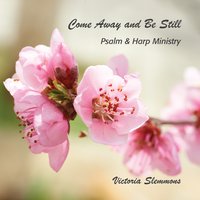Where, in the previous passage (Romans 1:18-32), Paul has spoken in the third person of those who have ignored the revelation of God in creation and "exchanged the truth about God for a lie and worshipped and served the creature rather than the Creator" (1:25), and "exchanged" divine glory for creaturely images (1:23) as well as "natural intercourse for unnatural" (1:26), here he addresses—and convicts!—the reader in the broadest possible terms, in the second person: "whoever you are" (2:1, 3). In other words, if those who have shamefully exchanged what is divinely ordained, natural, and glorious for what is creaturely, unnatural, and debased, are "without excuse" (v. 20), so too, "you have no excuse ... when you judge others; for in passing judgment on another you condemn yourself, because you, the judge, are doing the very same things" (2:1). Simply put, if in the foregoing Paul convicts the idolator, here he convicts the hypocrite; what is more, he does so in the broadest possible, even universal, terms: "whoever you are, when you judge others ... you ... are doing the very same things" (2:1). Thus, it is virtually impossible to escape the conclusion that both idolatry and hypocrisy are universally rampant and epidemic. And, in fact, the infectious connection between the two, from idolatry to hypocrisy, occurs by way of human judgement, i.e., condemnation of others. Alarmingly, Paul does not seem to make allowance for, or acknowledge the possibility, that some may judge idolatry who are not doing the same thing. In this, we surely see the psychological reality of the fallen human condition at work: we hate most in others what he see and hate in ourselves.
Yet Paul does speak of an alternative when it comes to how we respond to this universal condition of idolatry and hypocrisy, and this alternative comes by way of God's "kindness and forbearance and patience," which are intended to inspire "repentance" (2:3). This redemptive path is put before the reader in a series of negative, incredulous questions meant to show how obvious it should be. Paul says: "Do you imagine ... you will escape the judgment of God?" (v. 3) "Do you despise the riches of his kindness ... ? Do you not realize (it) is meant to lead you to repentance?" (v. 4). By contrast, the heart that will not obey this truth, that will not take the way of repentance, is "hard and impenitent" (v. 5; cf. v. 8) and bound for wrath according to "God's righteous judgment."
Thus, when Paul speaks of two different forms of repayment, two different ends or results—wrath and fury for the self-seeking and the wicked (v. 8), or honor and glory, life and peace for those who do good with patience (vv. 7, 10); i.e., "according to each one's deeds" (v. 6)—he is not retracting his foregoing description of the total depravity of the human condition whereby idolatry, condemnation, and hypocrisy have infected one and all; rather, he is speaking now of two different classes of people according to how they respond to the kindness, forbearance, and patience of God. Will they repent of willful wickedness or persist in it?
Furthermore, he sets aside the former distinction between Jew and Gentile (Greek) as the way to separate the righteous from the unrighteous (see 10:12). Both are "under the power of sin" (3:9, 23). Certainly, however, the Jew and the Greek remain distinct in at least one crucial respect: these judgments and rewards will be seen first (sequentially speaking) among the Jews, and then apply to the Greek (vv. 9-10). This matter of historical sequence in the plan of redemption will be the focus of Paul's consideration in Romans 9–11 and elsewhere. What is important at this juncture, though, is to recognize that Jew and Greek are, according to God's kindness, summoned to repentance from what amounts to the same point of departure: the depravity of idolatry and hypocrisy. Furthermore, both possible responses will be seen among both Jews and Greeks. Patient repentance and self-seeking wickedness will cut right across both groups—first among the Jews, then among the Gentiles. But these divergent responses are a subsequent consideration; the prior and universal fact is that all—Jew, Greek, idolator, judge, and hypocrite—are called to repentance.








